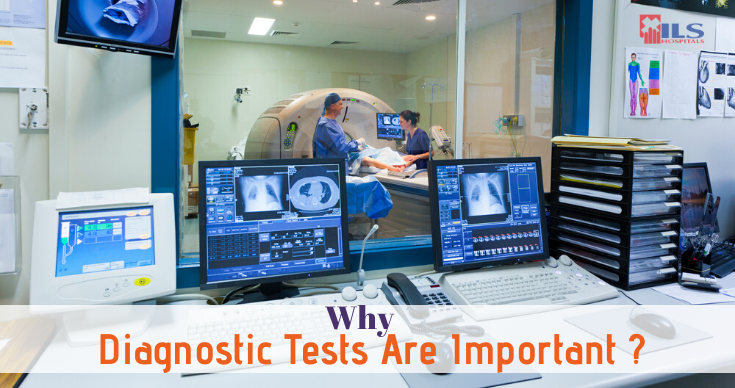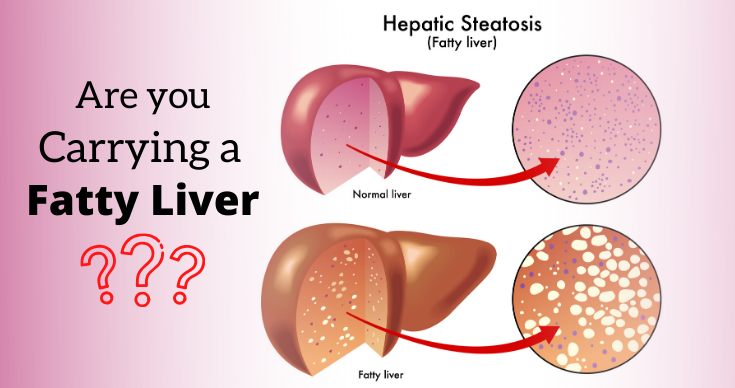Do You Have Gastritis? Abstain From These Foods
In simple words, gastritis is inflammation that happens near the lining of the stomach. Living with gastritis is not easy. When you’re diagnosed with gastritis by a gastroenterologist, you will have to make a lot of changes in your life style. The biggest mandatory transformation you make is in your diet. If you have gastritis, you need to follow a specific diet for a healthy digestive system.
Today, ILS Hospitals, one of the best hospitals in Kolkata and Agartala will brief you about the foods that you must refrain from if you are suffering from gastritis.
Fried and fatty foods
Fried and fatty foods causes bloating and can even worsen your gastritis. Instead of deep-fry, opt for other healthier cooking mediums – stir-fry, air fry, roasting, steaming, and baking.
Spicy foods
Foods with a lot of chillies and spices are strictly prohibited in a gastritis diet as they worsen yours symptoms. If you have gastritis, ensure that your meals have fewer spices with low use of chillies.
Acidic foods
If you are a food lover which tends to be acidic in nature, then stop doing so. While suffering from gastritis, these foods will cause more harm than good.
Dairy products
Dairy products are beneficial for one’s health. But someone with gastritis should rather avoid the consumption of milk and its by-products as they can aggravate the gastritis symptoms.
Carbonated beverages
Carbonated drinks are not good, more so for gastritis patients. Avoid drinking soda and carbonated beverages.
Caffeinated beverages
Caffeinated beverages, like tea and coffee, should rather be avoided. If you can’t avoid them, then try to cut down the consumption. Switch to healthier alternatives, like green or matcha tea.
Alcoholic beverages
Consumption of excess alcohol or addiction of the same is not good for your health. It would be best if you stop consumption of alcohol completely.
If you face any gastritis related issue, visit ILS Hospitals in Kolkata and Agartala to consult our renowned gastroenterologists.
Certain Significant Diagnostic Tests That You Should Know
Diagnostic tests are some important processes through which medical professionals identify certain diseases and conditions. There are numerous diagnostic tests in medical science, but today, ILS Hospitals would like to highlight a few of them. Let’s know about certain diagnostic tests in brief.
CT (Computed Tomography) Scan
Computed tomography scan or well-known as CT scan is a diagnostic imaging test done by the medical professionals to view the inside of the body. CT scan takes X-ray images from different angles and a computer to generate cross-sectional (tomographic) images of bones, blood vessels, organs and other soft tissues. CT scans are used by the doctor to diagnose-
-
Bone fractures
-
Infections
-
Bone tumours
-
Internal injuries
-
Internal bleeding
-
Blood clots
-
Cancer
-
Cardiovascular diseases
-
To determine the method of treatment for operations, biopsies and radiation therapy
-
To observe the efficacy of treatment, like radiation therapy etc.
MRI (Magnetic Resonance Imaging) Scan
MRI is a diagnostic imaging tool which uses strong magnetic fields and radio waves to produce comprehensive images of the organs in the body. An MRI scan helps in diagnosing conditions, like tumours, injuries in the brain due to trauma, cysts, abnormalities of the brain and spinal cord, heart conditions, stroke and many more.
As MRI scan uses strong magnetic fields, it is not suitable for pregnant women and people with pacemakers, cochlear implants, artificial joint, metal plates, dental fillings, intrauterine device (IUD) and some others.
Electromyography (EMG)
Electromyography helps in diagnosing the health of your muscle and nerve disorders, like muscular dystrophy, multiple sclerosis, amyotrophic lateral sclerosis (ALS). You’ll be prescribed EMG if you suffer from muscle cramps, numbness, tingling etc. In EMG, the technician will insert electrodes at various parts of the body as per your symptoms. The electrodes will release electrical current at certain times to check for the muscle’s activity, so it can cause a little discomfort to the patient.
Endoscopy
Endoscopy is another diagnostic test in which an endoscope, a long and thin flexible tube attached with a light and camera is inserted through the mouth to get detailed images of the digestive system. The gastroenterologist recommends endoscopy to determine certain health-conditions as follows:
-
Polyps
-
Ulcers
-
Chronic constipation
-
Chronic diarrhoea
-
Gastritis.
Liver function test/s (LFT/s)
Liver function tests are also called hepatic panel and are a collection of blood tests recommended by the doctor to determine the person’s liver health and performance by measuring the proteins, enzymes and bilirubin in the blood as discharged by the liver. This diagnostic test is required to check for inflammation (hepatitis), infection and other diseases in the liver. You are most likely to be recommended LFT by the medical supervisor if you have serious medical conditions like high blood pressure, diabetes, anaemia etc.
Echocardiography
Echocardiography is used to monitor the heart’s functioning and defects. In an Echocardiography, sound waves are produced by the machine to create live images (echocardiogram) of the heart. During the test, the Echo technician will attach soft sticky patches (electrodes) on your chest and put gel on a transducer to be pressed on your chest for the examination.
At ILS Hospitals in Kolkata and Agartala, we provide the above diagnostic tests and many other medical services to our patients. For more details, get in touch with us.
Do You Have Fatty Liver Disease? Find Out The Answer
The primary function of the liver is to purify the blood, detoxify the system and to store certain vitamins, minerals and glucose. Hepatic steatosis or commonly known as Fatty liver disease (FLD) is the accumulation of more than normal fat in the liver. If this condition is caused by excessive alcohol consumption, then we call it Alcoholic Fatty Liver Disease (AFLD). Fatty liver can lead to serious health conditions, like liver inflammation, cirrhosis and even liver failure. Do not ignore if you have already been diagnosed with FLD and get immediate liver treatment.
Causes of Fatty Liver Disease
- Obesity
- Hypertension
- High cholesterol and fat in the blood
- Overconsumption of alcoholic drinks
- Sudden weight loss
- High blood sugar or diabetes
- Certain liver infections like Hepatitis C
- Poor nutrition
- Genetics.
Symptoms of Fatty Liver Disease
The symptoms of fatty liver are mild during the initial stages, hence can be only discovered through proper diagnosis. If the condition deteriorates, you’ll notice the following symptoms:
- Tiredness or Exhaustion
- Abdominal pain
- Weight loss
- Swollen abdomen
- Nausea
- Poor appetite
- Confusion.
Diagnostic tests for Fatty Liver Disease
A correct diagnosis is required to pinpoint Hepatic Steatosis. Your medical history is extremely important for the doctor to find out the exact cause of FLD, so ensure that you provide accurate previous medical reports and answer all the questions precisely. The medical professional will recommend the diagnostic tests as mentioned below:
- Physical exam, in which the doctor presses on your abdomen to check for any enlargement.
- Liver function tests, which are certain blood tests to determine the health of your liver.
- Diagnostic imaging tests, such as Ultrasound, MRI and CT scan, to find the presence of excessive fat in the liver.
- Liver biopsy, in which a tissue sample of your liver is collected to inspect the liver’s condition and damage.
There’s no specific treatment for Hepatic steatosis but with certain changes in the lifestyle and medical guidance, the damage can be reversed and the condition can be in full control. Let’s look at the lifestyle changes you are most likely to be prescribed by the gastroenterologist.
- Avoid drinking alcohol (in case of Alcoholic Fatty Liver Disease (AFLD).
- Eating a healthy and well-balanced diet.
- Losing weight.
- Getting regular check-ups and treatment from the concerned doctor.
You can always visit ILS Hospitals, one of the best hospitals in Kolkata and Agartala for any kind of medical help.













